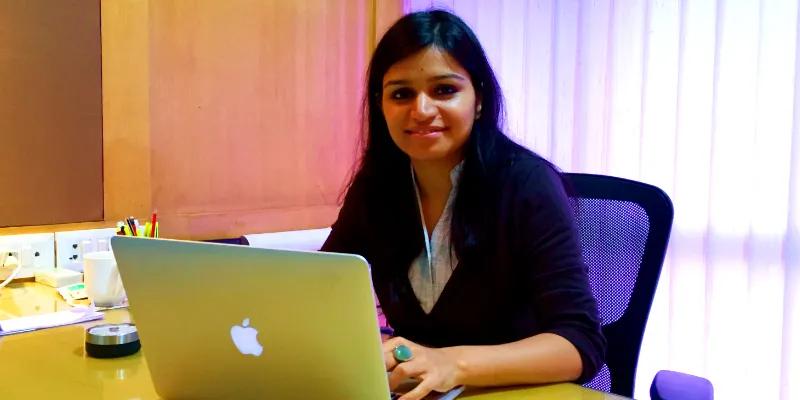Presenting Garima Tripathi – ceramist, history enthusiast, engineer and entrepreneur who now cares for 600 patients daily
Today, Garima Tripathi heads a healthcare startup that clocks 600 transactions a day. Her education and past experience belie this present state: she had studied engineering at India’s most sought-after university, picked up the study of ceramics at Harvard, dove into the treasure trove of world history at the School of the Museum of Fine Arts, only to become a hands-on business analyst at Deloitte Consulting India Private Limited.
Garima grew up in different cities in UP, before cracking IIT-Kanpur to pursue engineering. She then wanted to explore the corporate world, which is when she joined Deloitte as Business Analyst. Her stint at the finance multinational was great, but her multiplicity started to show its first signs. “I wanted to take a break and explore my other interests. Ceramics tell so much about our history. It is one of the oldest arts and I have always been interested in art history. After Deloitte I wanted to pursue it to increase my knowledge and understanding. That’s how I ended up at SMFA in Boston and Harvard Ceramics where I got to understand the history and material. The experience was quite enriching, as Boston has great educators, entrepreneurs,historians and academicians. I ended up teaching briefly at a ceramic studio in Cambridge Massachusetts, too. I absolutely loved my time there, but India, food, parents and health brought me back home,” says Garima.
India Calling…
Her time away from home also made her dwell on the importance of curated healthcare, especially for old parents of the Indian Diaspora, which, oddly enough, has not been capitalised upon despite the digital revolution. “I as well as all of my co-founders living away from home, have, at some point, faced difficulties in finding the right caregiver for our parents when they were ill. The current system lacks transparency and accountability. There is no verification of the nurse/attendant coming to your house and taking care of your loved ones. There is no replacement provided in case you were unhappy with the caregiver. Pricing was not clear and people are taken advantage of due to this,”Garima explains.

That’s when VipinPathak, now Care24 CEO, mentioned the idea of home-care to her and it made perfect sense to start Care24. “Care24 was born out of the need to build a professional and reliable service where individuals could rely on us in their time of need. Most of the time such services are required when the family is stressed due to the illness of a loved one,” says Garima.
“Initially, friends and family were skeptical of my plunging into the startup world. Everyone advised me to continue my comfortable corporate job but Care24 was a natural choice because of the idea as well as the founding team.”
...For some Indian problem solving
The team of IITians brought together a team of experienced medical professionals and caregivers to deliver ‘world-class healthcare services’ at home, with a network 24×7 nurses,attendants, and certified physiotherapists who help individuals through the rehabilitation process.
The nurses are trained at monitoring and recording vital signs, injections, administration of medication and intravenous infusions, post-operative care, wound care and all the while providing emotional support to the patient and the relatives. Their physiotherapists are adept at handling every musculoskeletal condition.
At the heart of their business are the caregivers, who are well-trained attendants providing assistance with a patient’s daily living tasks, through times of acute or chronic illness – which is perhaps most crucial to people living away from home who want to avidly care for their parents.
“Customers can make bookings for nurses, attendants, or physiotherapists, track who will be coming, put in preferences for male or female, vegetarian and non-vegetarian, and even report grievances in a rather transparent and open review system.,” Garima says.
She adds that the service is almost instant, as the customer will receive a call confirming his appointment within 30 minutes. “Getting reliable and skilled workforce was one of the initial challenges but we have learnt a lot from that time and now have a seven-step process before we onboard our caregivers,” explains Garima.
Harnessing technology
On using technology for the startup, Garima notes, “We’re strongly leveraging technology in streamlining our operations and service delivery so as to give the customer the best and reliable experience and also enable us to expand our profit margins. We are helping more than 500 patients everyday and providing increased earnings to about 600 caregivers every month.”
Entrepreneurship, to her, is a process of constant improvisation and achieving. “It is not about wanting to be an entrepreneur as much as it is about executing the idea you strongly believe in,” she adds.
And the state of entrepreneurship is better than ever in the country – especially so for women. “I believe people have opened their minds to the possibility of women entrepreneurs. We are getting support from friends, families, team as well as investors. And the increasing list of women entrepreneurs is bringing the confidence to aspiring women as well as to the entire system,” Garima adds.







